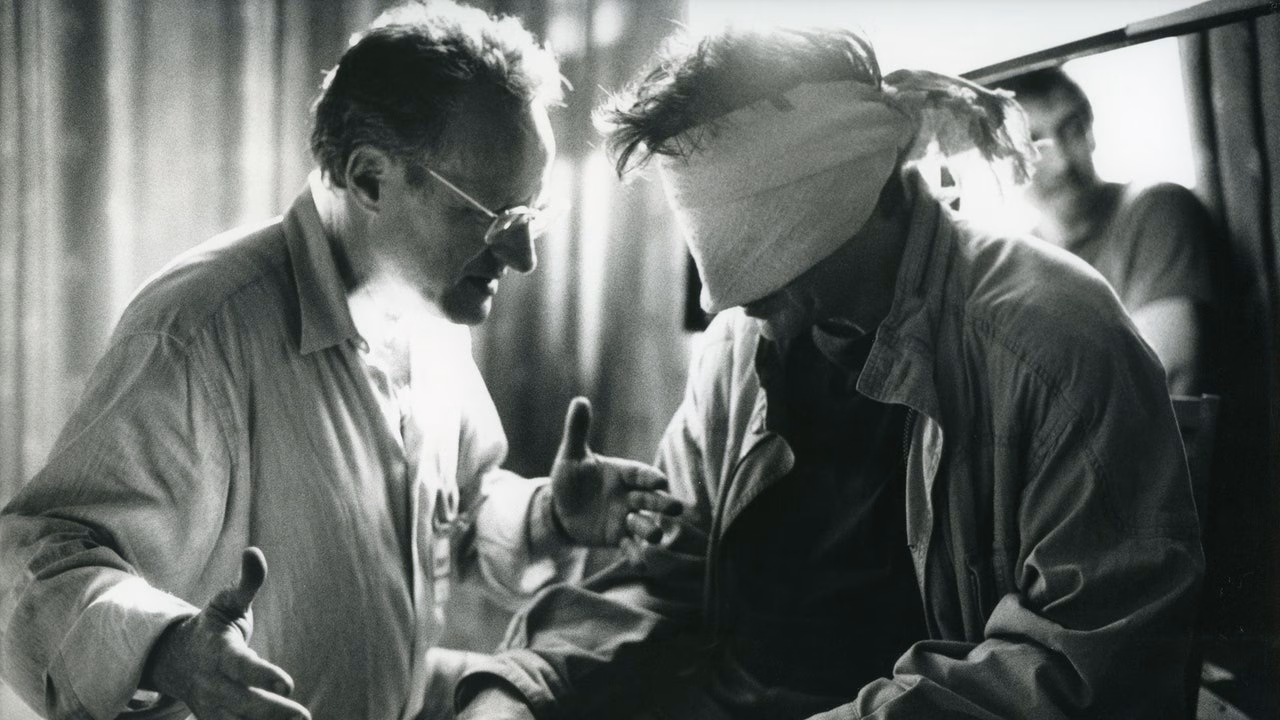Mann seemed to have placated Wallace, at least for a time. Wallace did not interfere in the release of The Insider through any legal means, and appea
Mann seemed to have placated Wallace, at least for a time. Wallace did not interfere in the release of The Insider through any legal means, and appeared to soften around the time of its release. “Everybody is saying I really don’t look so bad at all in it,” Wallace said in a November 1999 interview with The New York Times.
At the time, Wallace claimed he had not seen the film, but in years to come he was still bristling about The Insider—or at least parts of it. “Two thirds of the film is quite accurate,” he said in 2002. “It was dramatized excessively.”
Mann still believes Wallace overreacted. “He faltered, and that’s human,” the filmmaker says. “Every character in this film is real in that sense. We all have flaws; it’s warts and all. And then he recovers. And the show airs! The take on Mike Wallace in the film—it’s not negative.”
Mann believes there are fewer Lowell Bergmans today risking everything to tell the truth, and he points out that wealthy executives are more brazen than ever about exerting influence over what the public sees and hears. “Probably the most relevant issue which we’re dealing with recently is ownership of institutional news media—obviously in the case of Musk, Bezos, Murdoch,” Mann says.
Mann feels social media promotes falsehoods that sincere journalism can’t counteract, saying these platforms create an “exponential shrinking” that squeezes people into echo chambers. “That shrinking makes us vulnerable to waves of inflammatory attitude,” he says. “When removed from a sense of objective reality, it’s more about how an issue makes us feel than what an issue is.”
He isn’t hopeful things will get better. “I’m not one who believes that technology ever goes backward,” he says. “So this is our reality and it’s going to evolve and change, as I think it has in this recent election, in a very malign way.”
Ultimately The Insider was not strictly about the perils of smoking, or even the internal machinations of the news media. At its core, the film is about the cost of doing the right thing. Both Wigand and Bergman endured destabilizing career hits and suffered personal consequences for speaking out. Mann says the lesson of the film is that people should do what they know is right, even when it hurts.
“Where I start from is you look in the mirror, as we all do within the complexity of our own individual lives, and we ask ourselves, ‘Who am I? Do I measure up to my expectations of who I think I ought to be? Am I fucking up today? This year? Last month?’” he says. “That comes into sharp focus when faced with really significant, life-altering dilemmas.”

COMMENTS